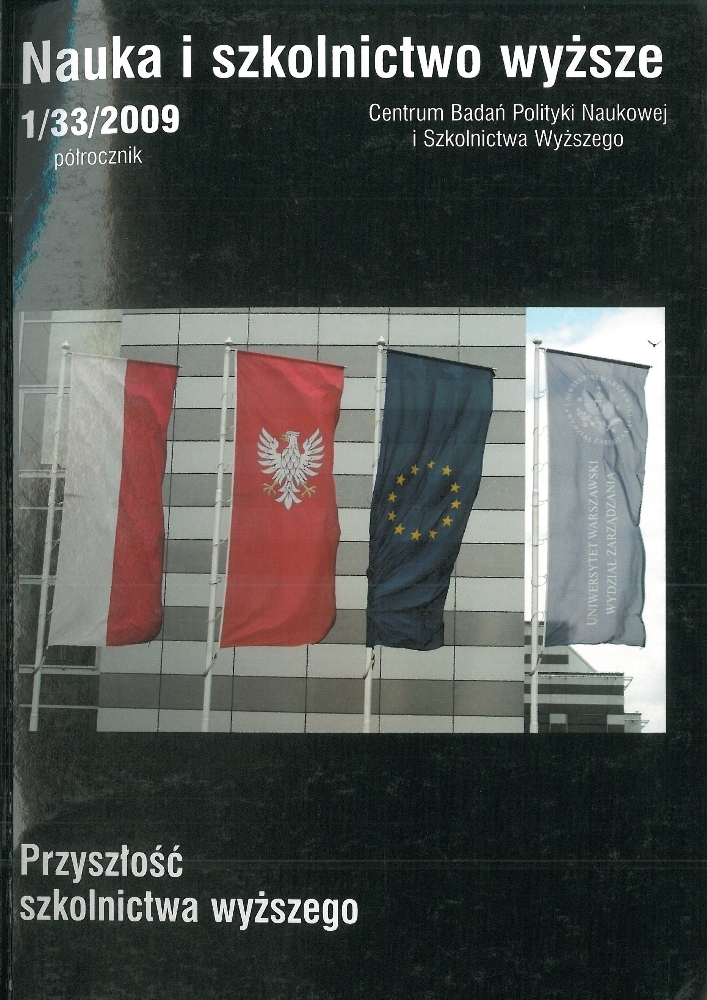Abstract
The paper discusses reflections discussed during the OECD Blue Sky project, aimed to develop a new set of statistical indicators for knowledge-based economy, notably the concept of knowledge in a knowledge-based society developed by prof. Nico Stehr’s, a German sociologist specialising in transformation of contemporary societies into knowledge- based societies. One part of the paper discusses Nico Stehr’s work and his theory of knowledge in the knowledge-based society whereas the second part describes the Blue Sky research project where Stehr’s theory was discussed as a point of departure for developing a set of indicators to describe knowledge-based economy. In this second part of the paper the author stresses the importance of methodological work conducted internationally by statisticians under the OECD aegis for the development of knowledge about knowledge and knowledge about innovation systems. Special attention is drawn to work aimed at capitalisation of R&D within the System of National Accounts (SNA). Stehr believes that the term “knowledge society” is a more appropriate label for the new stage of development than terms such as post-industrial society, post-capitalist society or information society. He defines knowledge as a capacity to act. The current transformation in the structure of the economy stems from another stage in transformation of the role of scientific knowledge in the society. Since the second half of the 20th century knowledge in the form or data, Computer software, operational research etc., which Stehr terms as “action knowledge”, has gradually become capable of non-manual production and has evolved into a social resource which, in some respects, is similar to human labour. This is the essence of a knowledge-based economy. In technologically advanced modern societies a growing body of work occurs at the second level of production, no longer governed by laws of naturę but, rather, by social constructs. The author also presents reflections on the futurę of the knowledge-based society, which Sterns describes as fragile, unstable and sensitive. This stems, among other reasons, from the contingency of knowledge. In her finał comments the author discusses the critique of notions such as “knowledge-based society” or “information society”, notably the views of Frank Webster, a British sociologist who criticises those notions as too generalising and ideological.
References
Bell D. 1973 The Corning of Post-lndustrial Society. A Venture in Social Forecasting, Basic Books, New York.
Bóhme G., Stehr N. (red.) 1996 The Knowledge Society, Sociology of the Sciences Yearbook, D. Reidel Publishing Company, Dordrecht.
Bruckner E .1999 The Sources and Consequences of Climate Change and Climate Variability in Historical Times, Kluwer Academic Publishers, Dordrecht.
Drucker P F. 1989 The New Realities: In Government and Politics, in Economics and Business, in Society and World View, Harper & Row, New York.
Giddens A. 1993 Sociology, Polity Press, London.
Jasiński L.J. 2007 Myślenie perspektywiczne - uwarunkowania badania przysztości typu foresight, Instytut Nauk Ekonomicznych Polskiej Akademii Nauk, Warszawa.
Knowledge... 1996 Knowledge as a Capacity for Action, Research Paper, Statistics Canada.
Measuring... 2005 Measuring the Changing Naturę of Science, Technology and lnnovation: Rethinking Old Indicators and Developing New Ones, Blue Sky II Conference - Background paper and issues for discussion, DSTI/EAS/STP/NESTI(2005)18, Reykjavik, 15-17 June 2005, OECD.
Niedbalska G. 2009 Prace metodologiczne w organizacjach międzynarodowych nad kapitalizacją i rachunkiem satelitarnym działalności badawczej i rozwojowej (B+R), „Wiadomości Statystyczne”, nr 2.
Schaefer T.R., Lamm PR. 1994 Sociology: A Brief Introduction, McGraw-Hill, Inc., New York.
Scheler M. 1925 Philosophical Perspectives (rozdział The Forms of Knowledge and Culture), Beacon Press, Boston.
Science... 2007 Science, Technology and lnnovation Indicators in a Changing World: Responding to Policy Needs, OECD, Paris.
Stehr N. 1994 Knowledge Societies: The Transformation of Labour, Property and Knowledge in Contemporary Society, Sage Publications, New York.
Stehr N. 1996 Knowledge as a Capacity for Action, Science and Technology Redesign Project, Statistics Canada, „Research Paper” , nr 2.
Stehr N. 2002 Knowledge and Economic Conduct: The Social Foundations of the Modern Economy, University of Toronto Press, Toronto.
Stigler G. 1961 The Economics of Information, „Journal of Political Economy”, czerwiec.
Webster F. 2006 Theories ofthe Information Society, Routledge, London.
